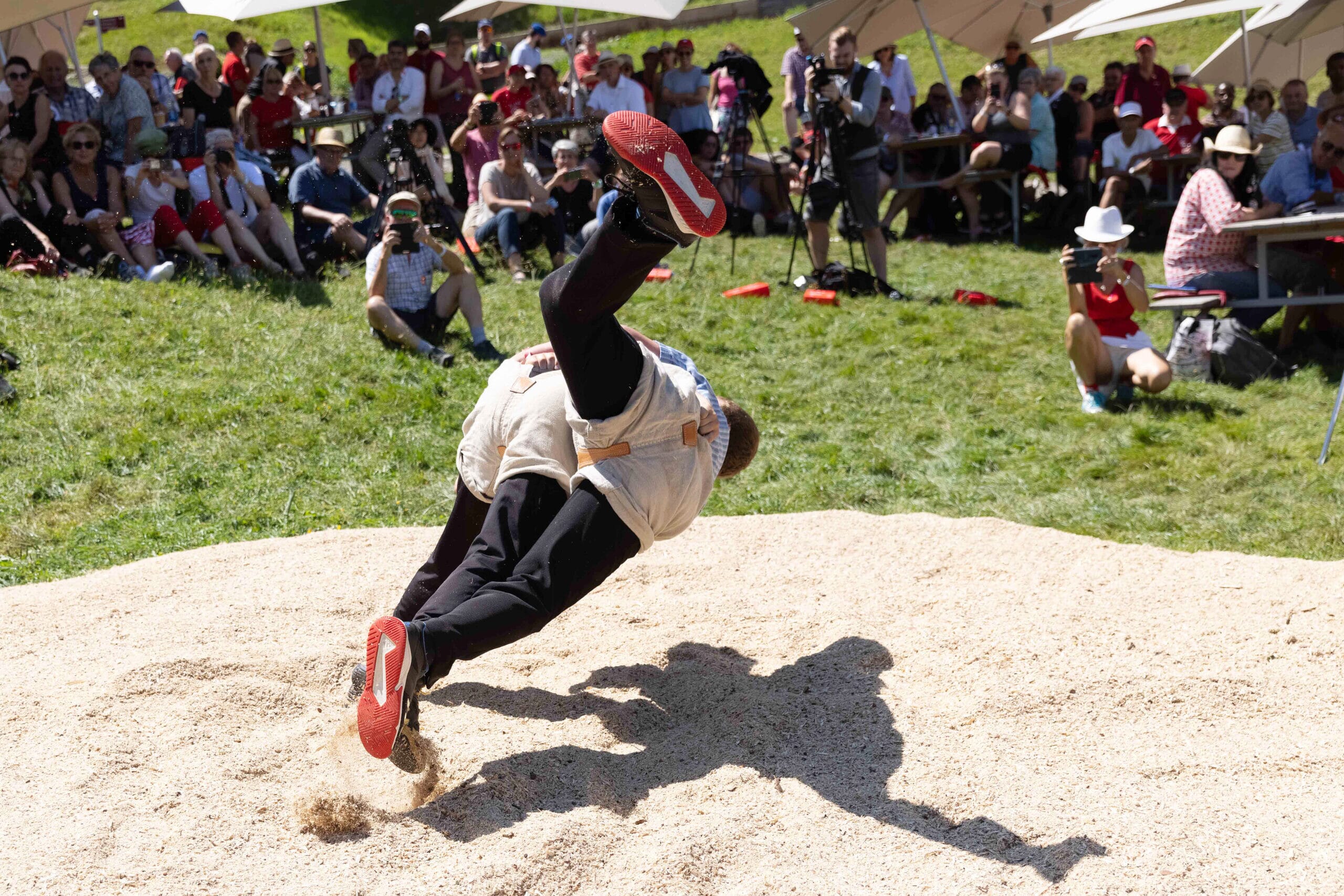10. September 2020
SSCG President J.D. Gerber: The captain leaves the bridge
Jean-Daniel, you handed over the scepter of the SSCG presidency on December 3 after nine years. What was your spontaneous reaction when former SSCG President Annemarie Huber-Hotz asked you 10 years ago to be her successor? How had you perceived the SSCG before?
I was completely surprised. The SSCG was only known to me from hearsay.
In June 2011 you took office as SSCG president. Less than two months later, you led the first federal celebration on the Rütli meadow. What was your main impression at this celebration?
First of all the fear of possible further riots like at the beginning of the century. However, the newly introduced security measures were effective. Then the beauty, solemnity and peace radiating from the Rütli meadow. Finally, the fact that many people present hardly sang the text of the national anthem, but merely hummed the melody.
You attributed the fact that the National Anthem was sung with little euphoria on the Rütli to the difficult understanding of the text written in 1840. Therefore, shortly afterwards, you suggested to the SSCG committees that a national artists’ competition be held to find a new hymn text. The new text should be based on the core values as formulated in the preamble of the Federal Constitution. How do you judge this project today?
I think the basic idea of integrating the central values into the national anthem is very necessary. These values are shared by practically all the inhabitants of our country as well as by Swiss people worldwide. The strong and catchy text by Werner Widmer was chosen from 208 competition entries. Since 2015, this text has been sung at more and more federal celebrations in the communities, but unfortunately not yet at international football matches. It will still take some time until the new text will be presented to parliament and the whole country for an official vote. However, this time is valuable because it will allow for valuable discussions about the values of our society. Especially the lines “Free are we who freely speak, strong as we protect the weak” make me feel happy and proud to be part of a country that cultivates and defends such values.
Nine years ago you asked the question whether SSCG was pursuing the right goals and setting the right priorities. What is your answer today?
The SSCG Committee has answered this question by placing SSCG’s activities under two main headings – promoting volunteering and strengthening social cohesion. This strategy will be consistently pursued. SSCG’s activities, for all their diversity, serve these two priorities.
You grew up bilingual. The SSCG considers itself as a national association, but was founded by people from Zurich, has its headquarters in Zurich and has always had presidents from German-speaking Switzerland. How has your linguistic background shaped the SSCG in recent years?
For more than 150 years, the people of Zurich have been the determining factor for the SSCG. That changed with the SSCG President Judith Stamm from Lucerne in 1998, even though she grew up in Zurich. My close ties as a bilingual with the French speaking part of Switzerland explain why I tried to position the SSCG there as well: Two General Assemblies have been held in Geneva and Yverdon, two representatives from the French-speaking part of Switzerland now sit on the SSCG committee, and the SSCG now receives even more requests for individual assistance from the French-speaking part than from the much bigger German-speaking part. I hope that the committee will continue to push forward the activities in the Latin part of Switzerland.
You have worked for the Confederation for decades: in the SECO, the World Bank and the Federal Office for Refugees. And you have served on several boards of directors of listed companies. In the state and in the economy, there is often top-down command, control and correction. What was it like for you when you presided over an NGO in the SSCG, where bottom-up process steps are discussed, explored and evaluated jointly and democratically at length?
In today’s world, the military terminology of command, control, and correction no longer corresponds to the facts, be it at the federal level or in business. It is better to speak of jointly developing solutions, evaluating and adjusting the decisions made. To be honest, there is not much difference to the NGOs anymore. Management principles are the same everywhere. But how they are communicated is very different. An officer speaks to his soldiers differently than I do to the staff in the SSCG, but both speak about goals, motivation, best practices, etc.
At the end of 2011, SSCG’s assets amounted to around CHF 77 million. Today it is over 90 million. How did you do that? Did the financial knowledge you gained from your board of directors mandates helped you a lot in the SSCG?
Of course I am pleased with this positive result. The success is largely the result of fortunate circumstances. Both the properties and the shares donated to SSCG by benefactors decades ago have increased in value considerably in recent years. Because SSCG spends more than CHF 3 million a year on its own projects, on projects for the poor and on projects for other organizations, the current financial cushion is comfortable, but SSCG will only be able to finance its tasks in the future if it manages its assets well and does not fall into a spending culture that is popular but consumes capital. Since SSCG, unlike the aid organizations, does not send begging letters, it continues to depend on regular capital income, bequests, inheritances and donations.
You are still very fit. What are you going to do with the 10 percent of jobs or about 4 hours per week that you will no longer use for SSCG?
Don’t worry, they are already fully booked. Taking care of the four grandchildren, improving relations with Europe as Co-President of the Swiss-Europe Platform, and finally helping the idea of sustainability to take off as President of “Swiss Sustainable Finance”.
Jean-Daniel, you have emphasized several times in recent years that the French expression “utilité publique” corresponds more to the essence of SSCG than the German expression “Gemeinnützigkeit” (Charity, Common Good). And especially recently, you have increasingly emphasized that the SSCG should promote the social cohesion even more. What social benefits should the SSCG particularly serve? And for which challenges should the SSCG work together with other actors from government, business and civil society to find solutions in the future?
In the German-speaking world, “charity” is equated with “voluntary” or “honorary activity”. The French expression “utilité publique” covers a broader spectrum. It also includes efforts to promote social cohesion in all its aspects, such as the promotion of the values of freedom, solidarity, justice and social policy as set out in the preamble to the Federal Constitution. Not least as the guardian of the cradle of the Swiss Confederation – the Rütli – the SSCG has a unique opportunity to promote the sense of togetherness of all parts of the country and language regions. The focus is on efforts that transcend cantonal and regional boundaries, such as the fight against unfair and discriminatory naturalization practices, which vary from canton to canton and even from municipality to municipality. This is why I very much welcome the fact that SSCG is conducting a series of expert discussions with key players in civil society, the state and business in order to define promising fields of action.
Dear Jean-Daniel, on behalf of all the people involved with SSCG, I would like to express my sincere thanks for your 9 years of commitment to SSCG. You were and are a prudent, fair, straightforward, modest, respectful and kind president and boss. We wish you and your family all the best. We hope to see you again regularly at the SSCG General Assembly and at the federal celebration on the Rütli meadow.



